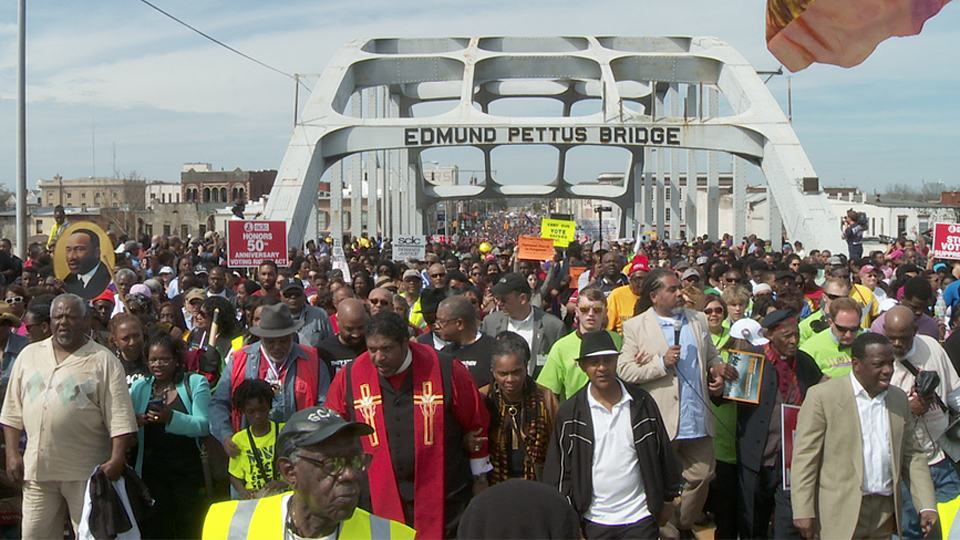
“America is not another word for Opportunity to all her sons.” – W.E.B. Du Bois
Published in 1903, the classic text The Souls of Black Folk, by American sociologist, historian, and civil rights activist W.E.B Du Bois, was a thorough analysis and critique of the struggle of Black Americans striving for democracy in a system embedded with oppression—often fueled by racism. Each chapter of his book, from which the above quote is taken, used spiritual hymns and inspired poems to drive home a moral message concerning the ills of racism and economic injustice.
It seems fitting then that today’s Poor People’s Campaign draws from the spirit of Du Bois’ immortal work in the launching of their recent report, The Souls of Poor Folk. The report, produced jointly by the Poor People’s Campaign and the Institute for Policy Studies, is a comprehensive study linking poverty, systemic racism, repression of voting rights, ecological disasters, and the war economy to explain the current struggles of millions of working and marginalized people in the U.S.
The current Poor People’s Campaign takes its name and inspiration from the first poor people’s campaign that was to be led in 1968 by slain civil rights leader, Rev. Dr. Martin Luther King Jr. Today’s iteration, co-chaired by Rev. Dr. William Barber and Rev. Dr. Liz Theoharis, is gearing up for 40 days of non-violent “moral fusion direct action,” to take place across the country, with the support of dozens of other organizations.
Barber explained, in a press conference earlier this week, that “the true change forward must be from the bottom up, led by the people who are impacted—by them and not for them. Movements don’t start from D.C. and New York down, but from Selma and Montgomery [Alabama] up.”
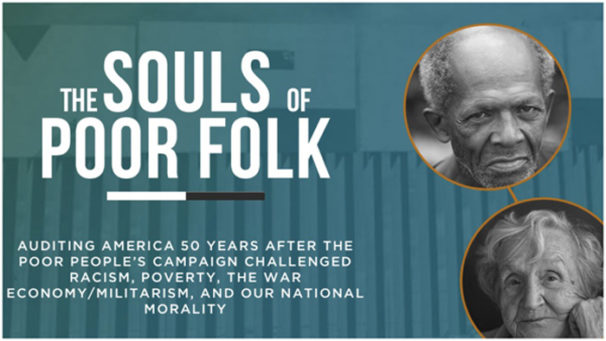
The Souls of Poor Folk is described as “an empirical study that brings us toward an honest confrontation with our own history—how our path has unfolded since 1968 and how our nation trembles today for lack of moral vision.” It aims to summon “our highest moral aspirations and diagnoses our deepest national ailments over five decades.”
The report fuses statistics with direct testimony from poor and marginalized communities to paint a picture of the challenges and injustices that millions in the country face in daily life. It’s an audit of the last 50 years since Dr. King’s assassination that seeks to survey just how far the nation has come in addressing the three ills of society that King often noted—systemic racism, poverty, and militarism.
The Souls of Poor Folk, with its heavy reliance on facts and figures, aims to dispel myths that stand in the way of addressing the oppression of the poor. Two of those myths targeted in the report:
- Poverty is the fault of the poor. The report explains that the “Triplets of Evil—systemic racism, poverty, and the war economy and militarism—as well as the interrelated problem of ecological devastation” have worsened, thus causing further poverty, as opposed to the assumption of individual failure.
- Despite our nation’s abundance, there is not enough for all of us to survive and thrive. A clear case is presented in the report that indeed there are enough resources in the world’s richest nation to ensure “dignified lives” for all its people. The true problem is that the priorities of the wealthy and powerful are skewed and aimed at making just a few wealthier at the expense of the wider population.
With its findings, The Souls of Poor Folk argues that the ills plaguing society are not separate and distinct from one another, but are actually interlocking. The report presents key findings related to each of the four major issues of racism, poverty, militarism, and ecological devastation.
Systemic Racism
- Legislative actions and legal decisions at the federal and state levels have severely restricted the ability of people of color—especially poor Black people, Latinx, and Native Americans—to participate in democratic processes.
- “Tough on crime” politics has led to increased policing of poor communities and a tenfold increase in annual federal discretionary spending on prisons since 1976.
- Federal spending on immigration, deportation, and border policies increased from $2 billion to $17 billion, and deportations increased tenfold between 1976 and 2015.
Poverty
- Restrictions on democratic participation are compounded by structural changes in employment towards a low-wage economy, tied to a decline in union membership.
- Instead of going to workers, massive gains from economic growth have been going to a smaller and smaller share of society.
- Nearly 41 million Americans live below the federal poverty line.
- Student debt levels have exploded, driven in part by the growth of high-cost, high-risk, for-profit colleges, which now make up nearly a third of new higher education opportunities.
- America has become a debtor nation. 19 percent of all U.S. households (60 million people), 30 percent of Black households, 27 percent of Latinx households, and 14 percent of white households have zero wealth or their debts exceed the value of their assets.
Militarism
- Since Vietnam, the United States has waged an ongoing war against diffuse enemies, siphoning massive resources away from social needs.
- Militarism abroad has gone hand in hand with the militarization of U.S. borders and of poor communities across this country.
- The perpetual war economy is also linked to the broader trend of criminalization of the poor over the past 50 years.
Ecological devastation
- The tragic effects of Hurricane Maria on Puerto Rico in 2017 are a disturbing example of rising climate change threats, particularly for the poor.
- Across the United States, poor people face crises of water affordability, water pollution, and water scarcity in some areas exacerbated by climate change.
- While poor urban populations deal with rising water bills, the rural poor often lack access to piped water and sewage systems, with striking racial disparities.
- The U.S. Department of Defense was responsible for emitting 72 percent of the U.S. government’s total greenhouse gas emissions in 2016.
The report forcefully argues that there must be a break in the notion that these four issues intersect to affect only a small portion of the population. Citing the fact that there are over 140 million people suffering in poverty and oppression in the U.S. every day, the audit notes that in 2017, “just three White men owned as much wealth as the bottom half of the U.S. population, or 160 million people.”
Poor People’s Campaign organizers make it clear that The Souls of Poor Folk is not a research report that should remain on the shelf as a passive record of injustice. Rather, the aim is to use it as a tool to combat the damning myths, such as those cited earlier in the article, that further the “attention violence” that keeps the poor invisible. Barber explained at a press conference in Memphis on April 3 that attention violence describes what happens when there is political discourse about social issues but never a mention of the poor.
Referencing the oft-quoted principle of “truth and justice for all” in the United States, the report says that “the moral principles of our Constitution are focused on establishing justice for the general welfare.” That direction has been lost, it declares, “and a moral revival is necessary to change course and save the heart and soul of our democracy.”
“The Souls of Poor Folk,” the report says in its introduction, “is a declaration of the inherent value of every human being and a reminder that we are all worthy of the very necessities of life. It is also in direct contradiction to those who make moral claims about caring for the souls of people, but then pass policies that destroy their bodies and communities.”
Putting action behind the analysis, the Poor People’s Campaign is asking for everyone to share the report with “anyone who has experienced this crisis first hand, or will listen to those who have.” The organizers also invite everyone to be part of the upcoming 40 days of civil disobedience that will culminate with a mass mobilization in Washington, D.C., on June 23, which will launch a multi-year state-based campaign targeting the social evils detailed in the report.
Quoting novelist and social critic James Baldwin, the authors of the The Souls of Poor Folk, remind readers, “Not everything that is faced can be changed. But nothing can be changed until it is faced.”
To sign the pledge to get involved, readers can go to www.poorpeoplescampaign.org.
Read the full report: The Souls of Poor Folk.




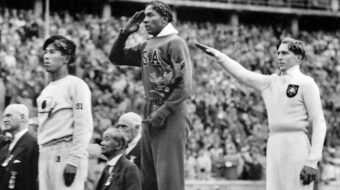
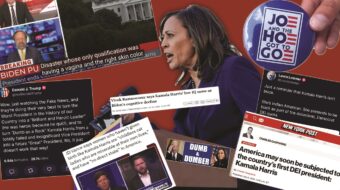
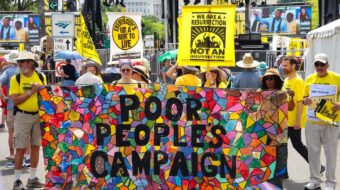





Comments